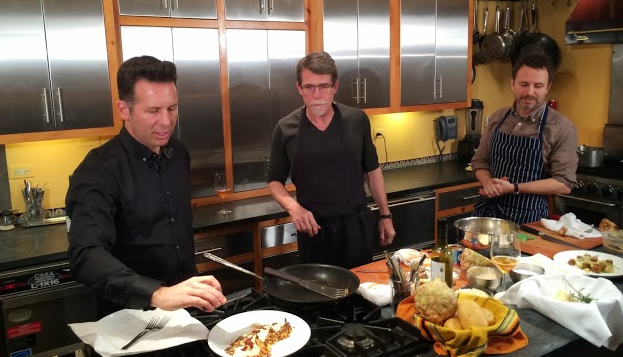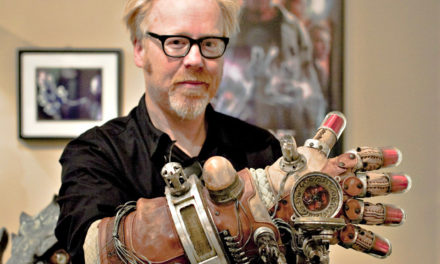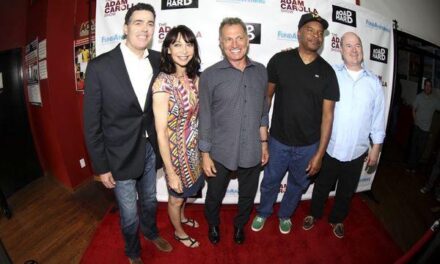It was only a matter of time until America’s seemingly new-found Epicureanism carved out a spot in the podcast world. The Feed is a new show from award-winning chef and restauranteur Rick Bayless and food journalist Steve Dolinsky. And it’s white hot right now.
Dolinsky, a former NPR contributor at WBEZ in Chicago and winner of a James Beard Award for Best Radio Segment put this thing together with Bayless in response to the dearth of foodie programs on the radio, and the internet for that matter.
The show has an NPR feel, which should come as no surprise given Dolinsky’s background, but there’s also a free-form quality that takes its cue from the podcast approach to broadcasting. The Feed has a companion YouTube channel, where the hosts take care of the visual components necessary for a food program. There are recipe challenges, celebrity guests, and travel advice for foodies abroad–the whole proverbial enchilada.
Dolinsky answered a few questions for me last week about The Feed‘s genesis and what we can look forward to on this popular new program.
What did you think radio and the podcast world was missing, regarding the food and drink scene?
There just wasn’t anyone talking to the major players in the food world, and there wasn’t anyone doing long-form pieces about food. I missed having an opportunity to do that at WBEZ. There also wasn’t anyone with the knowledge and background, who could speak intelligently re: food issues and be able to ask questions that had some depth.
You were a popular, award-winning, food contributor at WBEZ for years, but executives didn’t share your vision for a show completely dedicated to culinary endeavors. What culturally has made The Feed Podcast so viable today?
The fact that food and drink are everywhere, and a huge part of pop culture. Everyone claims to be a “foodie” these days, so obviously, there is demand for knowledge about dishes and ingredients. If you scan cable TV, you’ll see food everywhere.
Travel informs a lot of the content on your show. What are some rules of thumb you follow when dining abroad?
I always try to ask cab drivers where they would take their girlfriends or mothers for dinner. I try to eat and drink local of course, and I’m good about not overindulging too late at night, which would prevent me from sleeping well. It’s important to exercise on the road as well (as I type this on the West Coast, I’m getting ready to go to a boot camp class at 8 am)
Actually eating “on air” is traditionally considered a no-no in radio. Was that ever a concern for you when you were putting together the show?
No! We want people to hear us eat and to hear our reactions. I think eating on the radio can evoke a memory and an image and can be totally immersive if done well.
Any ingredients you’re NOT excited about tackling in the recipe segment?
I know Rick wasn’t excited about celeriac (celery root). I would say I’m probably not a fan of uni (sea urchin) or lamb’s heart, but I doubt we’ll go that route. The purpose of the recipe segment is to give people at home an idea or two about what to do with that item themselves, so it has to be practical.
How are your celebrity guests responding to the podcast?
They love it. In fact, I’ve had some great feedback from prospective folks, once I tell them that Glenn Kotche (Wilco) and Bill Kurtis got involved. Heather Headley (Tony and Grammy award winning singer) has said yes, and so has Gene Honda, the voice of the White Sox and Blackhawks.
Our pallets here in the States have come a long way in the past 20 years. Where do you guys see American cuisine going in the next decade?
Definitely moving toward more funky, fiery, pickled flavors. Kimchi is just the beginning. You’re going to see fermented sausages and chilies creep into our lexicon over the next year or so.
###
Follow The Feed @TheFeedPodcast






